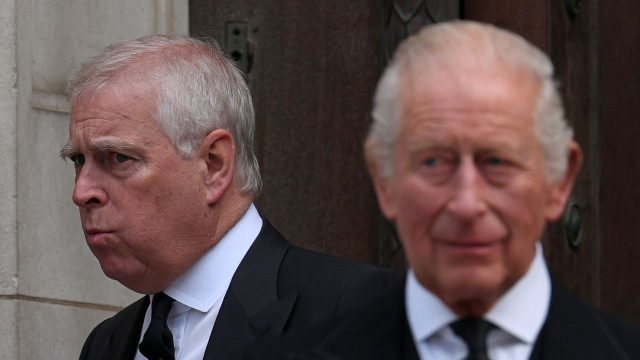
What happened
The U.K.’s King Charles III on Thursday stripped his brother Andrew of all his remaining titles, including prince, and forced him to vacate his Royal Lodge mansion near Windsor Castle to “move to alternative private accommodation,” Buckingham Palace said. The demotion, as the king seeks to “distance the royals” from Andrew’s “links to the Jeffrey Epstein scandal,” was “one of the most dramatic moves against a member of the royal family in modern British history,” Reuters said.
Who said what
Andrew had survived “years of shameful scandals” and “decades of tawdry headlines about shady business deals, inappropriate behavior and controversial friendships,” The Associated Press said. But a “new round of public outrage” over his Epstein links — including emails showing they had kept in touch longer than admitted, and a newly published memoir in which late Epstein trafficking victim Virginia Giuffre said Andrew acted as if “having sex with me was his birthright” — proved the final straw.
The “censures” against Andrew “are deemed necessary, notwithstanding the fact that he continues to deny the allegations against him,” Buckingham Palace said. “Their Majesties wish to make clear that their thoughts and utmost sympathies have been, and will remain with, the victims and survivors of any and all forms of abuse.”
What next?
The former prince, now known as Andrew Mountbatten Windsor, was expected to move to a residence on the king’s Sandringham estate. The royal family hopes this “ripping off the bandage moment” will “finally draw a line under the endless oil slick of bad news stories about Andrew,” said BBC royal correspondent Sean Coughlan. But “it will take more than taking away his titles to dispel” the public anger over his perceived “unchecked privilege” and “ugly entitlement.”
He will now be known only as Andrew Mountbatten Windsor






